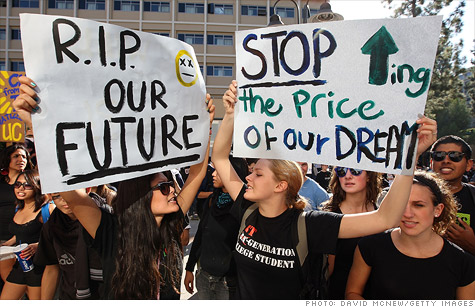
As time is moving on, college education in the US is becoming more and more unaffordable. Finaid.org, website on financial aid information, reports that the average college tuition cost is growing at approx. three times the rate of inflation. Consequently, the portion of college costs that the federal Pell grants wrap is reducing. Lauren Asher, president of an Oakland, California based advocacy group, says that the financial aristocracy of higher education is playing a vital role to cease the enthusiasm of some poor students entirely. However, now when we are experiencing a sky-rocketing student loan default rate and insufficient employment opportunities, should we still boast of education debt?
There is no doubt that, on average, a graduate degree is a still a very good investment as the unemployment rate for those who have just a high school degree or a diploma certificate is twice the rate of those who have a bachelor’s degree. A research shows that in addition to get exposed to better job opportunities, a bachelor’s degree holder also gets higher salary in comparison to those having only diploma or high school degrees.
Lauren adds that often it’s fiscally better to go for part time jobs during your studies than to borrow the entire loan amount. This, is a way, certainly minimizes the debt amount that you’d accrue for your education. If you have waited for a while before you go to college, if you are a drop out as you’ve enrolled to work, if you’ve qualified for a four-year school and if you work for long hours, chances are less that you’ll get a degree or certificate. Therefore, in such situations, getting help of a federal loan can really be effective to pursue your degree.
Though a bachelor’s degree is one of the tiniest investments for workers, taking on high and risky private student loans over federal loans can push students into excessive financial trouble.
Instead of assuming excessive student debt, Lauren advises students to get enrolled into institutions that don’t ask you to borrow huge loans. If you are a dependant undergraduate and can complete your bachelor within the federal Stafford loan limit of $31,000 or within $57,500 if you are an independent student, then it is okay. Raising the debt level beyond that can invite additional trouble. Before being enrolled in any institution, a student should go through the websites of the educational institutions and compare the fees associated.
"If the school you're interested in is urging you to take out a private loan or would require you to take out private loans in addition to federal loans, keep looking," she says. Also, private loans often come with least borrower protection and unpredictable interest rates.











